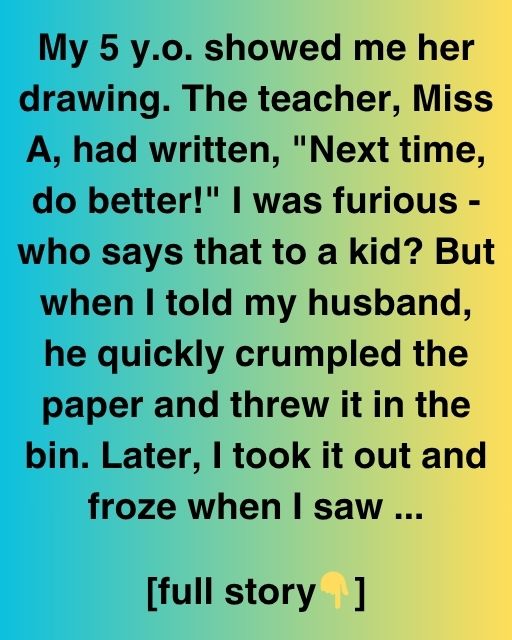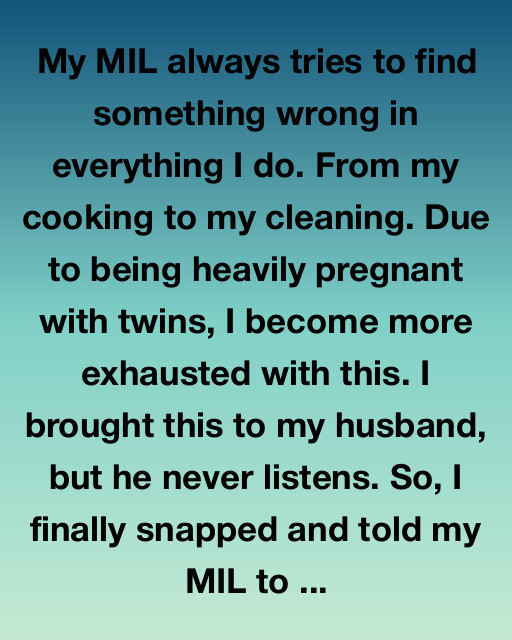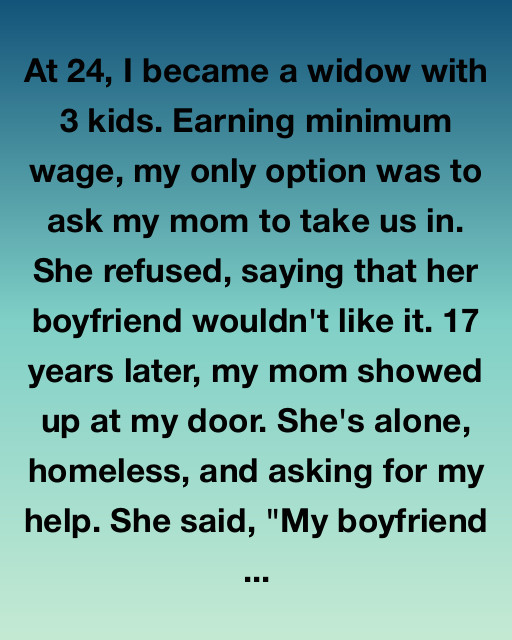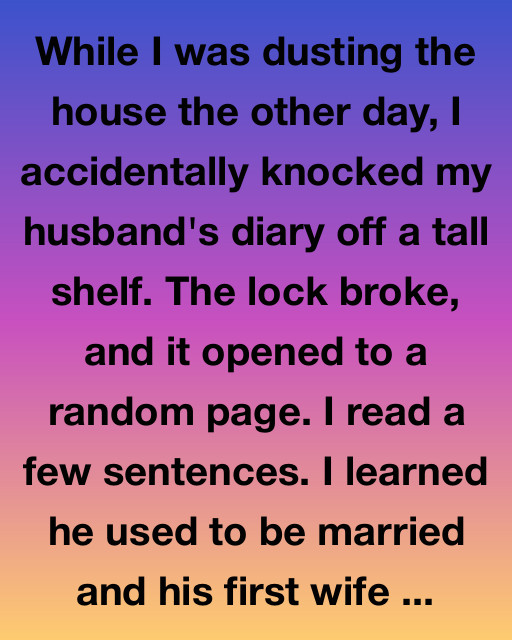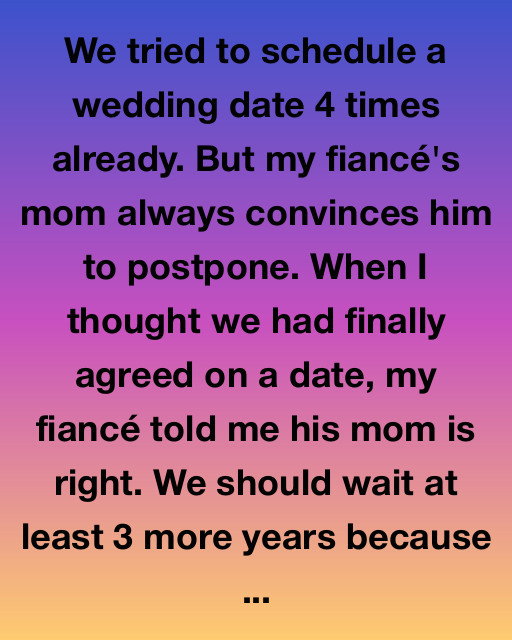My 5 y.o. showed me her drawing. The teacher, Miss A, had written, “Next time, do better!” I was furious – who says that to a kid? But when I told my husband, he quickly crumpled the paper and threw it in the bin.
Later, I took it out and froze when I saw something else scribbled faintly on the back of the paper. It looked like a child’s handwriting, but not our daughter’s – it said, “Mommy and Daddy don’t love me.”
My heart stopped. I couldn’t believe my eyes. How could my sweet little girl think something like that? I ran to her room, but she was asleep, curled up with her stuffed bunny. I sat next to her, stroking her hair, trying not to cry.
My mind spun. Where had we gone wrong? We read to her every night, we told her we loved her all the time. But what if we missed something? What if she needed us in ways we hadn’t noticed?
The next morning, I called the preschool. Miss A answered, sounding rushed. I tried to stay calm and asked if there had been any incidents, but she insisted everything was fine.
I mentioned the note, but she brushed it off, saying kids write silly things all the time. But this wasn’t silly. This was my daughter crying out in pain.
That day, I left work early and picked up my daughter myself instead of letting her ride home with my husband. I watched from a distance as she stood quietly by the door, her backpack almost as big as she was.
When she saw me, her face lit up for a second, but then she looked down, almost like she was ashamed. I crouched down, gave her a big hug, and told her how much I loved her. She clung to me tightly, and I could feel her small body trembling.
On the drive home, I asked her gently about the note. She was quiet at first, staring out the window. I told her it was okay to tell me anything, and after a few minutes, she whispered that Miss A sometimes said mean things when the kids didn’t draw or color “good enough.”
She said Miss A would sigh loudly or tell them they had disappointed her. I was shocked. How could a teacher speak to five-year-olds like that?
When we got home, I told my husband everything. He was stunned and sat down heavily at the kitchen table. He had been bullied as a child and I think, deep down, he was terrified our daughter might face the same thing. We decided right then that we would meet with Miss A the next day.
That night, I couldn’t sleep. I lay awake replaying every moment I could remember: times when our daughter seemed sad after school, drawings she’d hidden instead of proudly showing us, moments we brushed off thinking she was just tired. Guilt washed over me in waves.
The next morning, we went to the preschool together. We walked into Miss A’s classroom, which was decorated with bright posters and kids’ artwork. But the atmosphere felt cold. Miss A greeted us with a tight smile. When we brought up the note, her smile faded.
She said our daughter was sensitive, that she took things “too personally.” My husband asked if it was true that she told kids their work wasn’t good enough. Miss A admitted she sometimes used words like “disappointing,” but insisted it was to “motivate” them.
I felt anger rising in me. I explained as calmly as I could that there’s a huge difference between motivation and belittlement. That words like “Next time, do better!” might seem harmless to an adult but can crush a child’s spirit. Miss A’s face hardened. She said she’d been teaching for twenty years and knew what she was doing. We left the room frustrated and feeling helpless.
That evening, we decided to talk to other parents. I messaged a few moms I’d met at birthday parties. The stories they shared were heartbreaking. One boy had started wetting the bed again after Miss A yelled at him for coloring outside the lines.
Another girl had become withdrawn, no longer wanting to go to school. It became clear this wasn’t an isolated incident. Miss A had a pattern of using shame as a teaching tool.
Together with five other families, we wrote a letter to the preschool director. We requested a meeting and included examples of what our kids had experienced. We weren’t looking to get Miss A fired but wanted her to understand the damage she was causing – and we wanted change.
The director agreed to meet with all of us. She listened carefully, nodding as we spoke. She seemed genuinely shocked by what we shared. She promised to observe Miss A’s classroom and assured us our children’s well-being was a priority.
The next two weeks were tense. Our daughter still had to attend school while the director did her observations. Every morning, I told her how brave she was and how much we loved her. Every afternoon, I asked about her day, and slowly, she began to smile more, to talk about school without looking afraid.
Then, we got a call from the director. She invited us to a follow-up meeting. She told us she had seen enough to confirm our concerns. Miss A’s tone with the kids was harsh and shaming.
She said they were putting Miss A on administrative leave and would bring in a counselor to work with the class. They also promised new training for all teachers on positive reinforcement and emotional support.
I felt relief wash over me. Our daughter’s eyes lit up when we told her Miss A wouldn’t be her teacher anymore. Over the next few weeks, her confidence bloomed.
She started drawing again – rainbows, animals, our family holding hands. Each time she showed me a new drawing, she’d beam with pride. And I always made sure to praise her creativity, not how “good” it was.
A month later, the preschool invited parents to a community art show, displaying all the children’s work. Our daughter’s drawing of a smiling sun over a playground was right in the center.
When she saw it hanging up, she squeezed my hand so hard I thought my fingers would pop. Her teacher, Mrs. G, knelt down to tell her how wonderful her art was. I watched as my daughter’s eyes sparkled with joy.
That night, as we tucked her into bed, she whispered, “Mommy, I know you and Daddy love me.” Tears sprang to my eyes, but this time, they were happy tears. I kissed her forehead and told her we loved her more than anything.
One weekend, we took her to the park. She met a new friend named Lily, who was shy and hesitant to go down the slide. Our daughter held her hand and said, “You can do it! I believe in you!”
My husband and I exchanged a look – it felt like all the effort we put in to rebuild her confidence had helped her become the kind of person who lifted others up too.
As time went by, other parents told us their kids seemed happier, more excited about school. The preschool director sent out an email announcing they’d started a new kindness curriculum, teaching kids how to support each other and express their feelings in healthy ways. They also held a workshop for parents about how to talk to kids about their emotions.
Looking back, I realized how close we came to missing the signs. It made me think about how easy it is to assume our kids are fine just because they don’t cry out loud. Sometimes their feelings are scribbled in faint letters on the backs of papers we almost throw away.
A few weeks later, I was organizing the art supplies at home when I found a new drawing from our daughter. It showed our family as superheroes, each of us wearing capes and smiling. At the top, she had written in big, bold letters: “MY FAMILY IS MY HERO.” I called my husband over, and we both hugged her tight.
Months later, we still made it a point to sit together every evening, asking about each other’s day, sharing stories, laughing, and comforting one another.
Our daughter grew into a confident first grader who loved to read and tell stories. Every once in a while, she’d show me a new drawing, and I’d catch myself remembering how it all started with that single note.
The biggest twist came unexpectedly during a grocery run. I was reaching for a box of cereal when a woman tapped me on the shoulder. She introduced herself as Miss A. I felt my chest tighten, but she looked different – softer, with eyes that seemed to carry remorse.
She told me she had gone through training and therapy after the preschool incident. She said she realized how hurtful her words had been and wanted to apologize to me and my daughter.
She shared that when the preschool put her on leave, she was angry at first, convinced parents were overreacting. But seeing recordings of herself interacting with the children opened her eyes.
She said it was the hardest thing she’d ever watched. She thanked me for speaking up, saying it saved her career and taught her to see kids as individuals who need love and encouragement. I could see she meant every word.
That night, I told my husband about our encounter. We sat in the living room, holding hands, grateful we had trusted our instincts instead of brushing things aside. We realized the ripple effect of advocating for our child had spread farther than we ever imagined.
Our daughter, now six, continued to thrive. One morning, she told me she wanted to become a teacher when she grew up, so she could help kids feel brave and happy. It was a full-circle moment that filled my heart with pride.
Years from now, I know I’ll still remember the day I pulled that crumpled paper from the trash. It was the turning point for our family, a lesson that taught us how powerful words can be – to tear down or to build up. And that sometimes, the quietest cries for help come from the smallest voices.
If you’ve ever doubted whether your voice as a parent matters, let this be your reminder: it does. Trust your instincts. Speak up for your child. Because love is not just in the big gestures but in the everyday moments, the bedtime hugs, and the willingness to fight for their happiness.
If this story touched your heart, please like and share it with other parents who might need this reminder today. Let’s spread the message that every child deserves to feel safe, loved, and proud of who they are.
